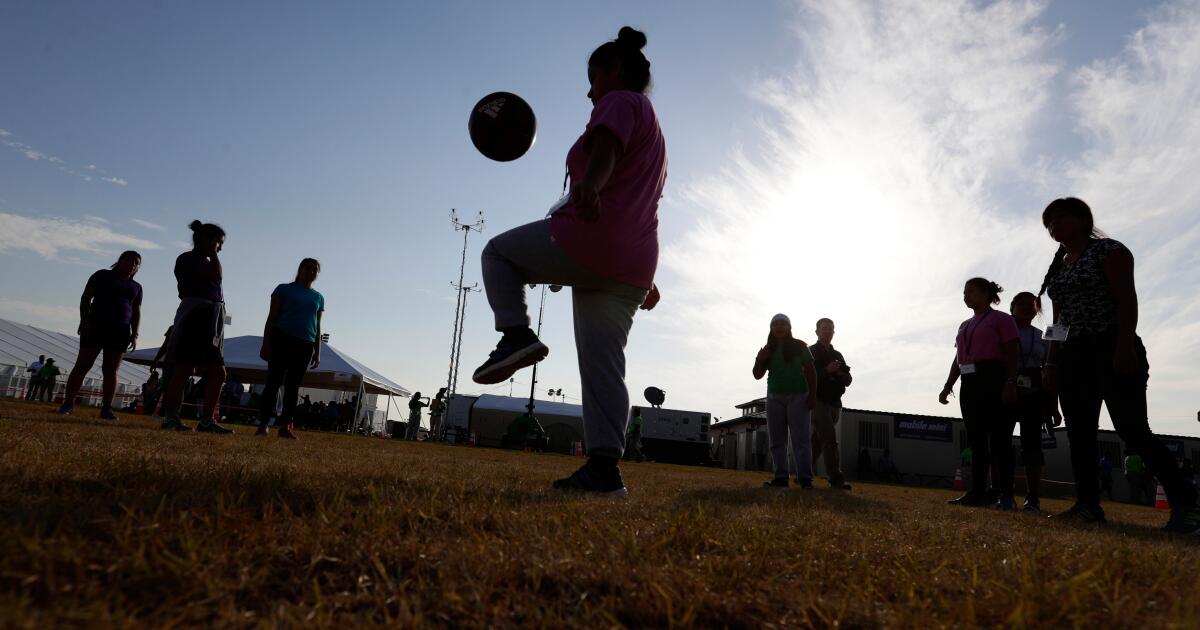Judge denies Trump request to end policy protecting immigrant children in custody
McALLEN, Texas — A federal judge ruled Friday to deny the Trump administration’s request to end a policy in place for nearly three decades that is meant to protect immigrant children in federal custody.
U.S. District Judge Dolly Gee in Los Angeles issued her ruling a week after holding a hearing with the federal government and legal advocates representing immigrant children in custody.
Gee called last week’s hearing “deja vu” after reminding the court of the federal government’s attempt to terminate the Flores settlement agreement in 2019 under the first Trump administration. She repeated the sentiment in Friday’s order.
“There is nothing new under the sun regarding the facts or the law. The Court therefore could deny Defendants’ motion on that basis alone,” Gee wrote, referring to the government’s appeal to a law it argued kept the court from enforcing the agreement.
In the most recent attempt, the government argued it had made substantial changes since the agreement was formalized in 1997, creating standards and policies governing the custody of immigrant children that conform to legislation and the agreement.
Gee acknowledged that the government made some improved conditions of confinement, but wrote, “These improvements are direct evidence that the FSA is serving its intended purpose, but to suggest that the agreement should be abandoned because some progress has been made is nonsensical.”
Attorneys representing the federal government told the court the agreement gets in the way of their efforts to expand detention space for families, even though President Trump’s tax and spending bill provided billions to build new immigration facilities.
Tiberius Davis, one of the government attorneys, said the bill gives the government authority to hold families in detention indefinitely. “But currently under the Flores settlement agreement, that’s essentially void,” he said last week.
The Flores agreement, named for a teenage plaintiff, was the result of more than a decade of litigation between attorneys representing the rights of migrant children and the U.S. government over widespread allegations of mistreatment in the 1980s.
The agreement set standards for how licensed shelters must provide food, water, adult supervision, emergency medical services, toilets, sinks, temperature control and ventilation. It also limited how long U.S. Customs and Border Protection could detain child immigrants to 72 hours. The U.S. Department of Health and Human Services then takes custody of the children.
The Biden administration successfully pushed to partially end the agreement last year. Gee ruled that special court supervision may end when Health and Human Services takes custody, but she carved out exceptions for certain types of facilities for children with more acute needs.
In arguing against the Trump administration’s effort to completely end the agreement, advocates said the government was holding children beyond the time limits. In May, CBP held 46 children for more than a week, including six children held for over two weeks and four children held for 19 days, according to data revealed in a court filing. In March and April, CPB reported that it had 213 children in custody for more than 72 hours. That included 14 children, including toddlers, who were held for over 20 days in April.
The federal government is looking to expand its immigration detention space, including by building more centers like one in Florida dubbed “Alligator Alcatraz,” where a lawsuit alleges detainees’ constitutional rights are being violated.
Gee still has not ruled on the request by legal advocates for the immigrant children to expand independent monitoring of the treatment of children held in U.S. Customs and Border Protection facilities. Currently, the agreement allows for third-party inspections at facilities in the El Paso and Rio Grande Valley regions, but plaintiffs submitted evidence showing long detention times at border facilities that violate the agreement’s terms.
Gonzalez writes for the Associated Press.


